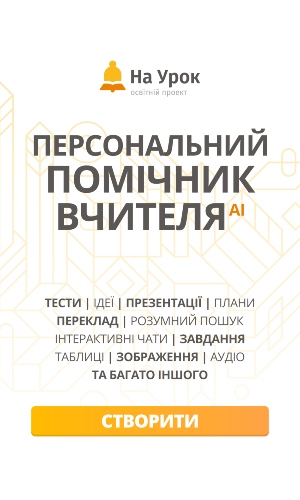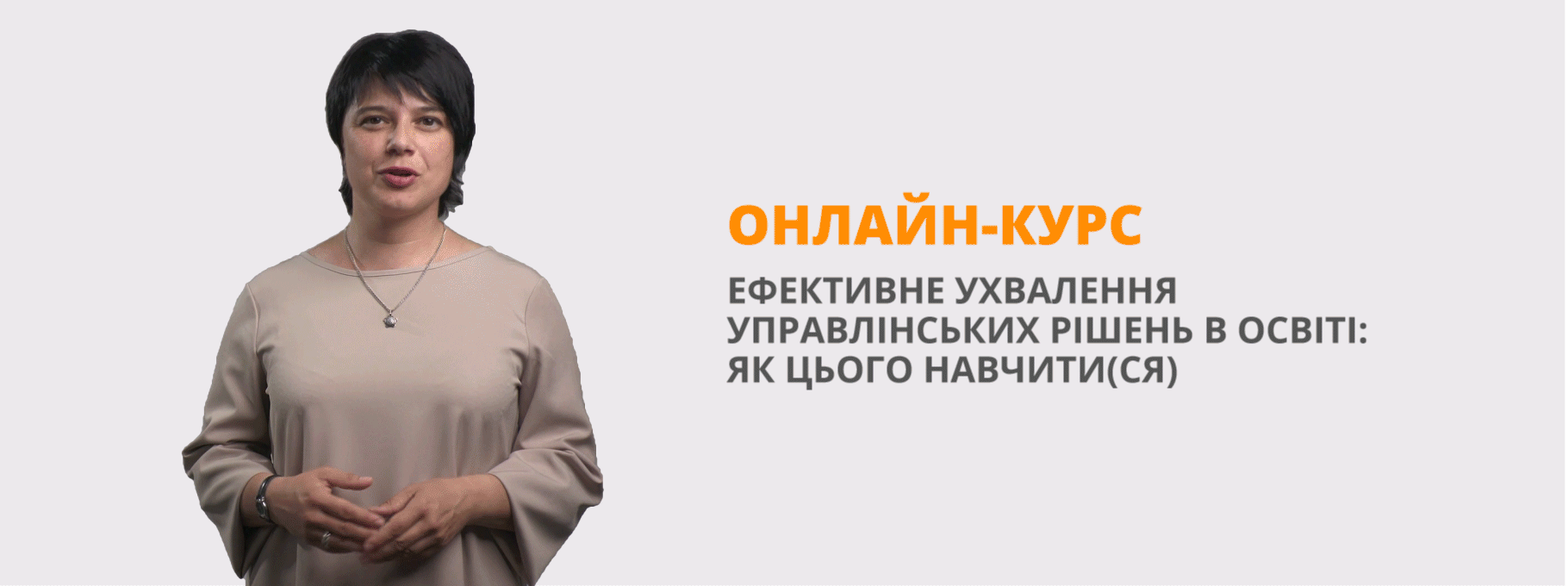Урок "Проблеми екології"
Методична розробка уроку з англійської мови на тему :
«Проблеми екології»
Розробив: викладач вищої категорії Симоненко Алла Леонідівна
м. Токмак, Запорізька область.
What can you do to keep the earth clean and healthy?
You should be a friend to her.
A poem “Hug the Earth”:
Walking along feeling free
Feeling the Earth here with me
And I love her. She loves me
I hug the Earth, the Earth hugs me.
She's our friend,
We'd like to be together forever.
The Earth is our garden
It's a beautiful place
For all living creatures
For all the human race,
Helping Mother Earth
We can peacefully roam,
We all deserve a place
We can call our home.
Food is a treasure from soil and the sea.
Clean fresh air from the plants and the trees
The warmth of the sun giving life each day
Turns water into rain, it’s nature's way.
And 1 would like to thank you, Mother Earth,
I like to see you dressed in green and blue
I want to be by you.
Aims: - to develop students’ speaking skills through different methods of work (group, pair work, individual); - to broaden students’ knowledge of the topic; - to practice listening and making up the students’ own opinion on the topic; - to practice students’ grammar and reading skills; - to bring up students’ careful attitude to the environment.
Хід уроку
1. Організаційний момент.
God morning, students. The weather is fine today, isn’t it? You also look wonderful. So, I hope, it will have only positive influence on your work. Let’s start!
2. Оголошення теми і мети уроку.
Have you noticed the changes in the weather last time? Look at the pictures. (The teacher shows the pictures showing that the Earth is in danger). – Does it trouble you? What else troubles you concerning our nature? Why is it important to find out the right solution to all these problems?
Today we are going to speak on this topic. But not only to speak. We shall try to find out the solutions to some ecological problems. To think. To know. To make decisions. At the same time you will practice your listening, grammar, reading, and speaking skills.
3. Активізація лексичних одиниць.
- Let us recollect our knowledge. Take cards, please. Your task is to choose the correct word to complete each sentence.
- Change your cards. You have to check your partner. If the answers are right, greet each other and say, “Well done!”
- Look at the screen. You can see the right answers there.
4. Слухання та обговорення.
- Listen and name three natural disasters in the order the speaker mentioned them: 1) The Netherlands is very flat and part of the country is below the level of the sea. The people there have to make sure that the walls by the sea are very strong. Usually, there is no problem, but in January 1995, it rained and rained for more than two weeks. The water in the canals and rivers rose higher and higher, and thousands of people had to leave their homes because of the danger of floods. They went to other towns and waited until the water level fell again. 2) Hurricanes are very strong winds that come from the sea. Warm wet air rises in a spiral and goes faster and faster – over 160 km per hour. In 1992, hurricane “Andrew” hit Florida. The people there had to leave their homes and move to other towns and wait. When the hurricane arrived, it killed 15 people and destroyed thousands of buildings. More than 50.000 people had nowhere to live. 3) Sometimes in desert climate, t does not rain for a very long time. This happened between 1968 and 1974 in the Sahel, in West Africa. The winds changed direction and the sea did not receive any rain for six years. Hundreds of thousands of people and nearly half of the animals in the area died because there wasn’t enough water. People had to walk many kilometers to find water.
> Complete the sentences.
1. The water in the riers rose higher and higher and there was the danger of… . 2. Hurricanes are very strong winds that come from… . 3. Hurricane Andrew killed 15 people in Florida and… . 4. It was I the west of Africa. The winds changed directions and the sea… . 5. People and animals died because… .
> Work in groups. Read and discuss the following:
Scientists understand a lot about environment but they don’t understand everything. Every year there are big and small disasters in different parts of the world. Some of these happen very often, but some of them are a big shock. How do these natural disasters affect humans? Can we do anything about them?
5. Робота біля дошки.
А) Письмове лексико-граматичне завдання:
> Use the phrases in the box and write questions by changing the form of the verbs in brackets.
- What would you do if you didn’t have a dime? What would you do if you didn’t have a dollar? - If I didn’t have a dime I’d cry all the time. If I didn’t have a dollar I would holler!
What would you do if you… ? (have) an exam the next day; (be) offered a job in Australia; (wake up) and (see) a snake in your bedroom; (meet) your friend of childhood; (get) too much change from a shop-assistant; (see) somebody stealing smth. In the shop; (borrow) a friend’s car and broke one of the lights.
- Work in pairs. Take turns asking and answering the questions as in the rhyme above.
Б) Усне завдання:
Role-play the situation in groups of four.
One of you is a TV host, the others are three guests who survived after some terrible disasters. Talk about your experiences.
6. Перевірка домашнього завдання.
“Do good planet news” – захист проектів.
7. Розвиток граматичних навичок.
Conditional sentences. Ex. 1. Read and complete the list with your ideas. Use the phrases in the box.
If we used bicycles, we would have less air pollution. If we planted new trees, rainforests wouldn’t disappear. If we…
|
Drive electric cars, use less paper, create special parks for animals, teach hunters it’s wrong to kill animals, not to cut out forests |
Ex. 2. Match the suggestions with the possible results. Then make conditional sentences as in the example.
Example: If the authorities put rubbish bins on every street corner, people wouldn’t drop litter in the streets.
Suggestions: put bins on every street corner, have more trees/green areas, improve public transport, people use bicycles, people recycle things, create more parks. Results: people have more oxygen, not be so much rubbish everywhere, people not drop litter in streets, people not buy so many cars, children be able to play safety, cities be less polluted.
Ex.3. Get ready to explain the statement, using Conditionals: “If every person swept their own doorstep, the city would soon be clean”.
8. Контрольне опитування.
> Which region in your country is the area of natural beauty? What are the main tourist destinations in your region? Describe any of them.
> Are weather forecasts important/ why? How can weather be forecast nowadays? What are some of the problems caused by the weather? Speak about different kinds of natural disasters and what people must or must not do if they witness any natural disaster.
> We are a part of nature. How do you feel about it? Speak about different wonders of nature.
> Comment on the quotation: Only when the last tree has died and the last river has been poisoned and the last fish has been caught, we will realize that we can’t eat money.
> What problems does rubbish cause and why? What is “recycling” and what can be recycled? Why is it important to recycle things?
> How does the weather affect your mood? Have you ever experienced a severe storm? How did you feel? What natural disaster are you afraid of and why?
> How does the accumulation of rubbish pose a threat to our planet? Should recycling be encouraged in the country and why (not)? In what way?
> Would you prefer to see an animal in captivity or in its natural habitat? Why? Which animal do you think leads a happier life? Why?
> Why do people keep animals as pets? What are the advantages and disadvantages of owing a pet: for children; for elderly people?
> What do you think about keeping animals in zoos? Is it wrong to wear fur or leather clothes and why (not)? What should be done to protect rare species of animals from extinction?
9. Тест.
10. Оцінювання. Підбиття підсумків.
- What have we done today? – Have we coped with all the activities? – What did you like most on today’s lesson?
Today we have talked about the problems of ecology.
Hometask: a) for the “excellent” mark try yourself in the role of a prominent scientist and make the invention for solving the most important and global ecological problem to your mind. b) for “good” mark – do ex.8 on p.104 (English pupils’ book 10 standard level, by Oksana Karpiuk). c) for “satisfactory” – ex.2, p.101.
Your marks are… .
The lesson is over. Thank you for your good work. Be grateful to nature and protect it! Have a nice day!


про публікацію авторської розробки
Додати розробку
